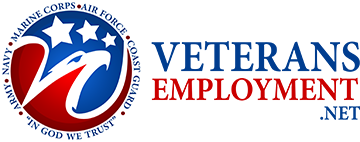Cover Letter Writing Tips
Cover Letter Writing Tips
No one enjoys writing a cover letter and hiring managers don’t enjoy reading poorly written cover letters.
So, how about we take the pain out of cover letters for everyone – you, the military veteran who is seeking civilian employment and for the people who will read your cover letter.
Read on to learn about the top cover letter writing tips we want you to follow. It’s also important you highlight your military career in your cover letter, so we’ve included advice on how you can best do this.
What Is A Cover Letter?
A cover letter is your chance to do bridge the gaps between your resume and you, the person. While your resume includes the facts on your career goals, education, employment history, and volunteer experience – your cover letter is your chance to introduce yourself.
It’s in your cover letter that hiring managers look for the reasons why they should interview you and consider hiring you. You want to use your cover letter as a way to stand out from the pile of resumes that include similar skills and experience.
Just as we want you to write a unique resume for every job you apply for, you must do the same with your cover letter. When writing your cover letter, think about what you want to tell the hiring manager about yourself.
Imagine you have just a couple of minutes to introduce yourself and tell this person why you would be an ideal fit for the role and company. Remember to let your personality shine through and to be yourself.
Top Cover Letter Writing Tips
Writing a cover letter doesn’t need to be stressful and it definitely shouldn’t be an afterthought. You need to put just as much time and attention into your cover letter as you did with your resume.
Keep these top cover letter writing tips in mind:
- Resume highlights: your resume is a brief overview of you and your skills. Use your cover letter to expand on your key skills, attributes, and other factors that are key to the role and company. Provide more context on what you’ve done and learned.
- How you can benefit the company: hiring managers are looking for people who can help the company and the existing employees. When writing your cover letter avoid writing about how much the job would help you and focus on how you see yourself contributing to the company.
- Be obvious: don’t be shy, use your cover letter to clearly state what you bring to the job and company. Highlight your strengths, experiences, and other details that make you the ideal person for the role. Be proactive but not pushy.
- Skills, skills, skills: there are going to be jobs for which you don’t meet the specific education requirements or have the exact number of years of experience. This is when you want to use your cover letter to show-off your skills. This is the ideal way to illustrate how your military skills and experience makes you an ideal candidate.
- Don’t stress about education: many people don’t apply for jobs because they don’t meet the education requirements. The job might require a master’s degree in human resources – but you have 20+ years of hands-on experience managing people, including providing career advice for new military recruits. This is where you use your cover letter to emphasize this work experience and show how it can be of benefit to the company.
- Connect with the hiring manager: you chose to apply for this job for a specific reason. Maybe it’s because the company is recognized for hiring veterans or because the company has a strong environmental commitment or because the company is doing innovative work in the medical field. Whatever the reason – tell the hiring manager why you chose his company and why you want to work there.
- Customize your cover letter: we highlighted this earlier but it’s important you understand this – every job is unique and every hiring manager is unique – therefore your cover letter must be customized for every position you apply for. Remember that your cover letter is creating a link between your resume, the job description, and yourself.
- Remember your language: just as you tailored your resume to mesh with tone and voice of the job description, you need to do the same with your cover letter. If the job description is a bit more relaxed, don’t use overly formal language. Equally important is to not be too casual – the hiring manager is not your pal (yet). Pay attention to the language used in the job description and on the website and use this as your guideline.
Just as you kept your resume focused and short (ideally no more than two pages), you need to do the same with your cover letter. No hiring manager is going to read a cover letter that is longer than one page.
Focus on the key points, but don’t go overboard – you want to grab the hiring manager’s attention and not overwhelm him or her with information.
How Can I Highlight My Military Career?
Your cover letter is the ideal forum for you to highlight your military career. The cover letter is your chance to showcase how your military career, education, and skills directly translate to the civilian world.
Keep these points in mind when highlighting your military career in your cover letter:
- No military jargon. Make it easy for the hiring manager to understand what it is you did during your military career. This means you need to explain your military skills in plain language.
- Your skills matter. Your military experience and skills are highly transferrable. Think of the skills you have like leadership, language knowledge, problem solving, ability to respond and react quickly, your ease with changing situations, and the rest of your similar skills. These are the skills that hiring managers get excited about because they highlight you as a person.
- Brag a little bit. If you’ve won awards, commendations, or honors – highlight these in your cover letter (and on your resume). Just as someone might highlight that they were the top sales earner for XYZ company, you need to showcase your military career highlights. Hiring managers are looking for the best potential candidates, so if you were one of the best in your platoon or troop – let this be known.
Think of your cover letter as being your door-opener – it’s the best way you have to open the doors to the civilian career possibilities out there. Yes, it can be daunting to write a cover letter, but you want the job and your cover letter is the ideal tool to help you get what you want.
This military cover letter example from monster.com is a good example of a personable and informative cover letter.
Remember to browse the Veteran’s Employment website for more practical and useful articles that can help you during your military career transition. Our focus is on finding employment for veterans – men and women like you who have served Americans and are now looking for new ways to contribute and make positive change.

